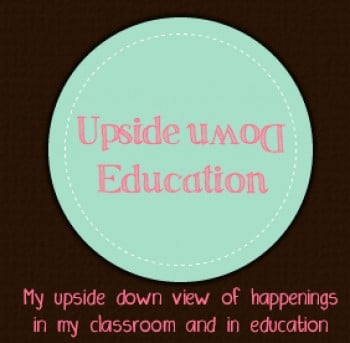Every morning my first period class almost has a routine. They are a different group of kids than a typical classroom. It’s a class of 17 and only 2 are girls, 15 are 8th graders. The guys in the class are mostly football players. They are students who usually get in trouble in class, not because cruel, but mostly because they can’t sit still. I had majority of students in 6th grade. When I saw the class roster I literally pushed crtl A then delete on my lesson plans. I knew better than plan lessons that didn’t relate to them and weren’t mostly hands on.
This morning routine we have. I walk them to my room because my room is on the 6th grade hall. While we wait for them we stand there and they always tell me who got in trouble or what happened to one of them the day before. While standing there I make sure they are in dress code, usually 1/2 have to tuck in their shirts and pull up their pants. Once I make sure they are dressed we walk to my room. While waiting on announcements they get out the lotion I bought them and put on knees and elbows that look ashy. Always one needs a band aid for a major scrape from football practice the day before. Unfortunately during this waiting I usually loose control of them. One the other day was “stealing swag” and putting it in a ziploc. A shoe once was thrown away. Bean bags get leaped on. When announcements and class starts they are back to students. They usually work hard but also joke around with each other while doing so.
So why do I tell you this? It’s not to show you why I’m exhausted by 8:30. Or why my stomach usually hurts from laughing. I tell you this to remind you that they are just kids. Even at 13 and almost 6 feet tall (I’m barely over 5′ so I’m the little one in the class), they are just kids. They need help getting dressed. Someone to get them a bandage, lotion, paper, etc. They need to be taken care of. They need a time to pretend. If they want to pretend all the white tiles in the hall are acid, OK, let them leap from square to square. They have adult bodies and voices but they aren’t adults. They need adults to guide them. To care for them. To laugh with them. Discuss good manners with them. They are the only class I’ve ever had that I shut the door when class starts, we’ve talked about we do it because it’s a safe place stupid questions can be asked.
I never imagined that class would be the highlight of my day, but they are even more than that. Every day they remind me why I went into teaching. They have no idea how much they add to my life. I’ve had some emotional things to deal with lately and they bring me the laughter I need for the day. I’d probably never admit that to them, haha, we can’t encourage bigger egos. And they’d make fun of me for being a sissy.
Please take the time this week and look at your students, especially middle and high school, and remember that they are more than students. They are children. There is a reason they can’t live alone yet. Someone has to take care of their needs. Not every student has someone to do that, so be that person. Remember why you are a teacher, not to teach test, but to teach children. And that’s exactly what they are, no matter how tall, they are children.
